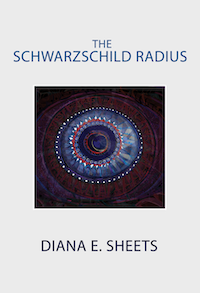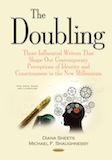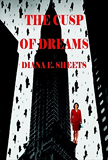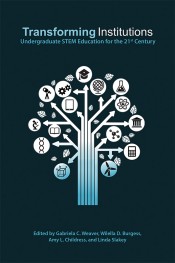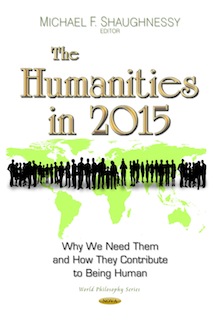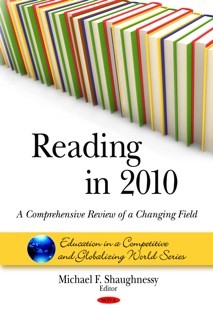Solzhenitsyn, Truth, & the Dismal Fate of Literature in the 21st Century, Part III
Copyright © 2009 by Diana E. Sheets
What, then, can be said about the dismal fate of Literature in the 21st century? How might fiction be appraised in light of Aleksandr Solzhenitsyn’s imperative to bear witness and Czeslaw Milosz’s assessment that in storytelling only “a clearly delineated human form enables us to distinguish between the real and the unreal” (Nobel Lecture, The Solzhenitsyn Reader: New and Essential Writings 1947-2005, eds. Edward W. Ericson, Jr., and Daniel F. Mahoney, ISI Books, 2006, 520, 523-4; Czeslaw Milosz, “Questions,” Aleksandr Solzhenitsyn: Critical Essays and Documentary Materials, eds. John B. Dunlop, Richard Haugh, and Alexis Klimoff, Nordland Publishing Company, 1973, 449).
Let us begin with the literary writer Jonathan Safran Foer and his debut novel, Everything Is Illuminated (Harper Perennial, 2002). As with Proust’s In Search of Lost Time (1913-1927), Everything is Illuminated features its author, Jonathan Safran Foer, as a fictional character. It is a novelistic rendering of his unsuccessful four-day trip to the
There are two narratives in Everything is Illuminated. One is the fictive memoir comically presented through letters from the young Ukrainian guide, Alexander “Alex” Perchov, replete with words creatively misapplied, to the narrator. Alex enlists his reputedly blind grandfather and bitch pooch, Sammy Davis, Junior, as participants in this detective thriller. Reflecting Foer’s actual experience, the foursome never succeeds in finding Augustine or learning the true circumstances that gave rise to the family saga. Embedded in Everything Is Illuminated is a second story, a novella-in-process written by the narrator in a style meant to evoke the magical realism of Márquez and, by implication, Chagall. This tale traces the family saga from 1791 until 1941 when the Nazis destroyed the shtetl in which Jonathan’s family resided. Rescued by Augustine, Safran survives and immigrates to
Everything Is Illuminated is a self-reflexive novel chronicling the author’s/character’s journey toward enlightenment. It is a memory story saturated in identity politics framed against the backdrop of the Holocaust. It is “smart” and cloying and manipulative and drenched in victimhood. Everything Is Illuminated pays homage to Proust and Márquez. Its “then” and “now” memory structure and fractured timeline borrow from Tom Stoppard’s play
Foer’s second novel, Extremely Loud and Incredibly Close (2005), presents the story of a nine-year-old boy, Oscar Schell, who struggles to overcome the trauma associated with the death of his father as a result of the terrorist attack on the World Trade Center on September 11, 2001. As befitting our feminized, child-obsessed, and victimized culture, we dwell within the consciousness of Oscar. It is not a pleasant experience. Our French-speaking boy wonder corresponds with Stephen Hawking. The author would have us believe the boy is wiser than adults. He struggles with “heavy boots” (depression) that cause him to engage in “zipping myself into the sleeping bag of myself.” Here is a virtuous boy (we know this because he is a vegan) who, as a result of this catastrophe, is now engaging in self-abuse (“I gave myself a bruise”). The story ends on a hopeful note with a flip-book reversing the images of a man who has fallen from the
Foer’s novels are emblematic of the fiction abetted and fostered by the professionalized novel-writing “factories” pioneered by the Iowa Writers’ Workshop and now de-rigueur for aspiring authors expecting to have their stories published. Fiction, struggling to persevere by the 1970’s, had already been overshadowed by movies, television, and “New Journalism” (http://www.literarygulag.com/blog/show/4; http://www.literarygulag.com/blog/show/15). By the late nineties the triumph of the visual media and confessional memoir had ushered in a second orality (http://www.literarygulag.com/blog/show/9; http://www.literarygulag.com/blog/show/42). The Internet and market forces have dictated the triumph of “little me” and the up-market proliferation of comic books now celebrated as “graphic novels.” All that remained for literary fiction was the genteel affectation of “consciousness,” now virtually synonymous with solipsism, a domain hostile to truth and reality and now saturated with estrogen (http://www.literarygulag.com/blog/show/5). The outcome is obvious: booklists weeping in sentimentality, trembling in postmodern intensity, and dripping in false virtue.
In the aftermath of the terrorist attack on the
Now, a broken man, Changez has returned to live in
But to a Westerner who dons the cloak of objectivity, what is remarkable about the “protagonist” is that in a few short years the normal slights and indignities that any Westerner encounters have succeeded in destabilizing Changez. Each psychic wound builds upon the other until fundamentalism bleeds into terrorism. Never does Changez ask himself the most troubling questions. How has
But Changez never confronts these vexing questions. Instead, he engages in transference. Yet what is the source of his grievance? As the novel demonstrates, no discrimination occurred. Changez was welcomed at
Next, let us consider John Updike’s novel Terrorist (Knopf, 2006), which presents the story of Ahmad, an eighteen-year-old boy-man whose absent father is Egyptian and his mother a free-spirited Irish-American. Ahmad is bright, sensitive, and angry. He embraces first Islam and later fundamentalism. He is eventually recruited as a suicide bomber whose mission is to blow up the Lincoln Tunnel, although at the last moment his former high school counselor, a Jewish man, intercedes and dissuades him. Despite Updike’s implausible conclusion—that an understanding Jewish Liberal can communicate with and dissuade an Arab-American boy-man intent on committing an act of terrorism—the underlying message of both Terrorist and The Reluctant Fundamentalist is clear: readers must empathize with would be terrorists. To do less is to reveal their ethnocentric barbarism. These are the novels celebrated by the literary establishment. Readers are indoctrinated in political correctness and Western guilt. They are expected to empathize with those who would harm
Because Updike never succeeds in presenting Ahmad as a fully believable character, the reader never truly inhabits the consciousness of a young man about to destroy the lives of others (Christopher Hitchens, “No Way,” The Atlantic, June, 2006, Vol. 297, Issue 5, 114-7). Hamid, to his credit, has written the better novel. But the principal question with which Literary Gulag is concerned is the following: Why are the political sympathies of writers, agents, editors, publishers, and academics directed toward ensuring that praise, nominations, and awards be given to these types of decadent and destructive stories? Their reasoning is clear: Changez is a victim. He is damaged. He deserves our sympathy even if he harbors a deep hatred of
But it is not just the novels set against the backdrop of 9/11 or acts of terrorism that inhabit this subjective realm of literary virtue. Stories garnering praise or prizes today must be encapsulated within identity politics or victimhood or inhabit child-centric domains suffused with faux innocence—all of which female readers deem worthy of empathy. Consider, for example, Jhumpa Lahiri’s Interpreter of Maladies, a short-story cycle awarded the Pulitzer Prize (2000). It presents the story of the Indian Diaspora and, by inference, the resistance of the characters to assimilation (http://en.wikipedia.org/wiki/Interpreter_of_Maladies). It is technically well crafted, although there is a smoldering domesticity that diminishes its ties to the real world, thereby lessening its import. Kiran Desai’s The Inheritance of Loss aims higher, although in terms of story effectiveness and technique, achieves less. Nevertheless, the latter won the 2006 Man Booker Prize and the 2007 National Book Critics Circle Award for fiction. But the success of this novel is predicated on Desai’s moral denunciation of the West, a judgment certain to elicit the sympathies of the literati. As Pankaj Mishra notes, “Almost all of Desai’s characters have been stunted by their encounters with the West.” The novel, he suggests, is skeptical of multiculturalism or what Salman Rushdie refers to as its “hybridity, impurity, intermingling, the transformation that comes of new and unexpected combinations of human beings, cultures, ideas, politics, movies, songs” (Pankaj Mishra, “Wounded by the West,” The New York Times Book Review, February 12, 2006, 11).
In an era when literary fiction is imbued with nothing if not identity politics, reader take note that none of these characters assimilate. Today, there is no melting pot. Instead, immigrants and ethnic groups retain their distinctive identities while resisting aspirational American values. Contrast the novels mentioned above with Saul Bellow’s The Adventures of Augie March, a quintessential novel of the
Consider also that the literary novel’s infatuation with genteel WASP stories officially ended this year with the death of John Updike. Take note that WASP entitlement today now applies to all stories written about Caucasian characters, except those saturated in victimhood or transgendered politics here defined as homosexual narratives, bi-sexual narratives, and narratives in which the characters are sexually ambiguous (by way of example the 2003 Pulitzer Prize-winning novel Middlesex by Jeffrey Eugenides).
The rise in ethnic fiction is not without benefit. Certainly, there was a period when publishers featured the fiction of WASP, Catholic, and Jewish writers to the detriment of other narratives. (Today these writers are more likely to be Latin American men whose fiction is deemed demanding or experimental.) But consider the consequence of exempting Caucasian stories from Anglo-American literary fiction, except in those instances where they represent socially marginalized characters (as, for example, in the novel by British author Mark Haddon, A Curious Incident of the Dog in the Night-time, published in 2003, in which victimhood, boyhood, autism, and consciousness are encapsulated into one empathy-saturated package). These increasingly politicized stories are advanced by publishers who favor fables of “social justice” and politically correct content at the expense of reality. Consequently, the American novel that strives to be panoramic in scope, towering in impact, and mesmerizing in its implications because it dares to present disturbing truths is no longer published (http://www.literarygulag.com/blog/show/6).
Literary Gulag concludes Part III of this essay by considering two novels by emerging writers that, to varying degrees, are engaged with the world: Benjamin Kunkel’s Indecision (2005) and Aravind Adiga’s, The White Tiger (2008). Both are, in a manner of speaking, parables and bildungsromans.
Indecision is the story of Dwight Wilmerding, an iconic representative of America’s young, affluent men born of Generation X (1961-1981, http://en.wikipedia.org/wiki/Generation_X) who are feminized (nominally sensitive, caring, non-aggressive, resembling women, except that they have significantly more sexual partners). These urbanites are, with respect to their dads, downwardly mobile (a 12% decline as measured by adjusted real earnings, Wiki/Generation X), unable to afford their own apartments, reluctant to marry, and resistant to fatherhood. Dwight and his cohorts are in a state of arrested development, loathe to assume responsibilities or, indeed, to make any decisions at all. Thus, our protagonist Dwight is the 21st century Holden Caulfield who has nominally matured to age twenty-eight (Jay McInerney, “Getting It Together,” The New York Times Book Review, August 28, 2005, 1, 12). Watching this boy-man is both amusing and painful. Never is the term anomie more aptly applied. This dude, and his generation, is clueless. His best hope is “hooking up” with a long-term partner whose earning powers equals or exceeds his own.
Dwight, as the Publisher’s Weekly review noted, is a “down-market prepster” (252.28,
The author, Benjamin Kunkel, is Harvard educated and obtained his MFA from
By contrast, The White Tiger is a novel more fully engaged with the world. It presents the story of the “economic miracle” of
The White Tiger won the 2008 Man Booker. Its thirty-three year old author, Aravind Adiga, was the second-youngest winner ever to receive the award (Soumya Bhattacharya and Vijay Dutt,
Nevertheless, as a parable of the travesties associated with
What redeems The White Tiger is that it conveys the seismic transformations occurring in the economy that are rupturing the rigid confines of caste and the once immutable familial and social obligations inherent in a feudal civilization. Balram succeeds in severing those ties. He is aspirational. He yearns to be an entrepreneur. He resists his mother’s pressure to marry and assume the lifetime of obligations that will ensue. By the novel’s conclusion, he has realized his goal of becoming a capitalist in the new market economy. True, he rescues a nephew. But this act of altruism confers tangible economic benefits since the nephew will become Balram’s trusted lieutenant.
The White Tiger is politically incorrect. It is satire. The protagonist, like
Aravind Adiga holds a dual citizenship from
If authors followed a caste system of their own and each just wrote about his kind you would end up with something like what you have now. You’d just end up with novels that represent about five percent of Indians . . . . I think the whole point of being in literature, of being in imaginative fiction, is to try and get under the skin of someone else and to speak in the voice of someone else . . . . That’s the reason I became a writer. I never wanted to write about someone like myself . . . . (http://www.guardian.co.uk/books/2008/oct/16/booker-prize)
Aravind Adiga has provided us with a novel that examines
Yet as promising as both Indecision and The White Tiger are by comparison with Everything Is Illuminated, these two novels fall short of full-blooded realism. The comedy evident in Indecision and The White Tiger threatens to dissolve into a laugh track designed to entice a readership away from the multimedia domain of the Internet. Certainly, no one would consider these easily digested parables comparable to Tolstoy’s War and Peace (1969), Stendhal’s The Red and the Black (1930), and Dreiser’s An American Tragedy (1925).
Thus, for nearly a century now—with the most notable exception of Solzhenitsyn—literary fiction has willfully turned its back on realism. In doing so it has become increasingly irrelevant, no longer able to present the stories of our times. Without Solzhenitsyn’s imperative to bear witness and Milosz’s exhortation “to distinguish between the real and the unreal,” fiction has lost its vitality. Readers now seek other entertainment. What once drew them to novels was the desire to understand our world and the truths and illusions encoded therein. Literary subjectivity, recast as postmodernism, has joined forces with “social justice” to emasculate and annihilate meaningful fiction. Return to realism, dare to tell the terrible truths of our age, and readers will return.
…..
The Cusp of Dreams
Today, Americans blame the greed of Wall Street for the collapse of our economy. But no one challenges the publishing industry or academe for having forsaken great literature in favor of the sanctimonious fraud we refer to today as literary fiction. In acceding to market forces, oddly enough, it is the stories by women writers engaged in writing about the world that become the first casualties. Publishers tell themselves that there is no audience for these “Amazon” stories. Little wonder, then, that in the annals of great literature, readers strain to find female authors who write beyond the bounds of gender and social class, despite the fact that, for more than a generation, women have been working in “a man’s world.”
For these reasons and to further the cause of great literature, Literary Gulag will publish twelve monthly installments of The Cusp of Dreams (Copyright © 2000 Diana E. Sheets) beginning in June. The Cusp of Dreams is an American story that dares to bear witness. It is a realistic novel that, reflecting its subject matter, presents the tragic and occasionally comic stories of ordinary men and women desperate to keep their jobs.
The Cusp of Dreams is the dark saga of modern business and the lives of people who struggle in its pursuit. It is not, however, a tale of executives making billion-dollar deals from their corner offices and agonizing over the color of their next Mercedes. Rather, it is the story of the men and women in the trenches who do what they can to close thousand-dollar contracts from their cars or cheap motel rooms and who wonder how they are going to pay next-month’s rent. Of course, they use the same tactics as the big dogs. They lie, cheat, steal, and, when necessary, attack their co-workers. However, their schemes don’t work and their jobs and personal relationships disintegrate in the process. This novel has no heroes. For the men and women living on the cusp, the outcomes are bad or, at best, ambiguous. Perhaps nobody cares, but they should because as the road-warriors’ lives collapse our whole society crumbles.


